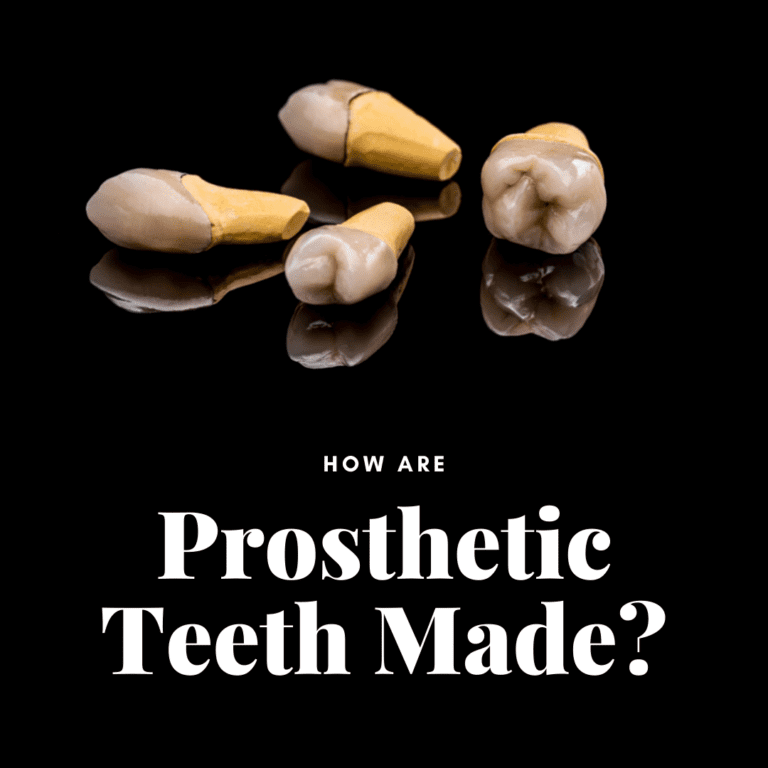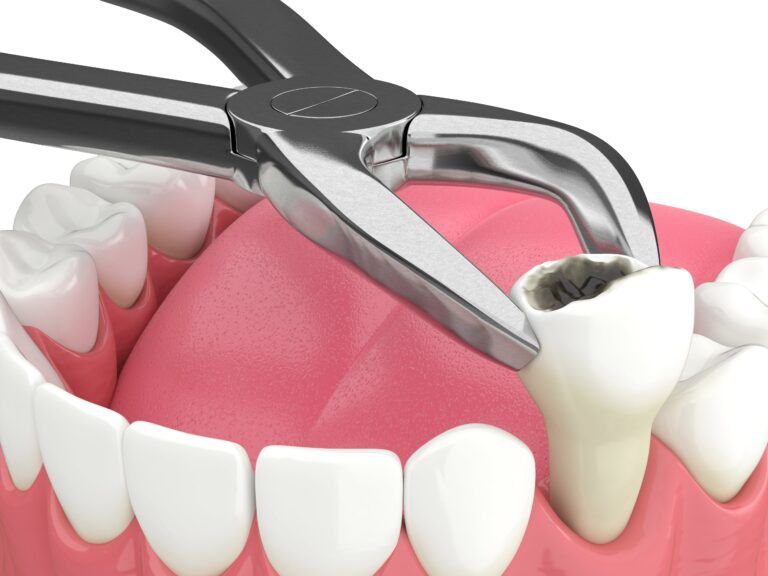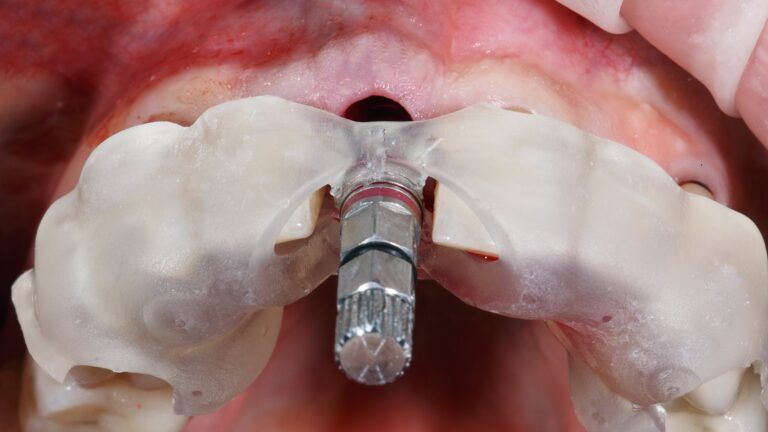When you lose a tooth, it’s not just the physical space that is lost, but also the function of that tooth. Missing teeth can cause a lot of problems for people. Not only does it make it difficult to chew and speak, but it can also lead to other health issues. That’s why many people choose to get prosthetic teeth. Prosthetic teeth can help replace both the form and function of missing teeth. In this blog post, we will discuss how prosthetic teeth are made. We will cover why they are needed, what types of dental prosthetics are available, and the process of getting a prosthetic tooth.
Why Prosthetic Teeth are Needed
Losing a tooth can have a significant impact on your life and your oral health. Because of this, your dentist will often recommend having one or more missing teeth replaced with a prosthetic tooth. At a glance, here are a few reasons why prosthetic teeth are needed:

Restores Your Smile
In the simplest sense, replacing a missing tooth keeps your entire smile intact, as well as your self-confidence. This is especially important if you are missing a tooth towards the front of your mouth. Nowadays, dental prosthetics are made to look just like natural teeth. This means that no one will be able to tell that your tooth is fake!
Maintains Proper Function
Not only does a missing tooth affect the way you look, but it can also affect the way you eat and speak. Dental prosthetics allow you to continue eating and speaking properly. Dental prosthetics also prevent other problems with function, such as temporomandibular joint disorder (TMD).
Prevent Bone Loss
When you lose a tooth, the bone that supported that tooth starts to resorb. This can lead to further problems, such as teeth shifting out of place or difficulty chewing. Certain prosthetics, like dental implants, can prevent this from happening by providing necessary jawbone stimulation.
Different Types of Prosthetic Teeth
Now that we’ve reviewed a few reasons why to replace missing teeth with a prosthetic, let’s look at the options available. There are several different types of dental prosthetics available. These include:
Traditional Bridges
A bridge is made up of two dental crowns with a false tooth (pontic) in between. Bridges are typically used to replace one or more missing teeth that are located next to each other and are surrounded by healthy teeth.
Traditional Dentures
Dentures are a removable dental prosthetic that is used to replace all of the teeth in an arch (upper or lower). Dentures are usually made of acrylic and are fitted to the contours of your mouth. While traditional dentures were popular in the past, many people are now opting for implant-supported dentures since they offer more benefits.
Dental Implants
An implant is a metal post that is surgically placed into the jawbone. Once the implant has healed, a dental prosthetic is attached to the implant. Implants are typically used to replace one or more missing teeth that are not located next to each other.
- Implant-Supported Crown: An implant-supported crown is a dental prosthetic that is attached to an implant. It is used to replace a single missing tooth.
- Implant-Supported Bridge: An implant-supported bridge is a dental prosthetic that is attached to implants. It is used to replace two or more missing teeth that are located next to each other.
- Implant-Supported Dentures: Implant-supported dentures are a type of denture that is attached to implants. They are used to replace all of the teeth in an arch (upper or lower).
The Process of Getting a Prosthetic Tooth
Now that we’ve covered the different types of dental prosthetics, let’s discuss the process of getting one.
Consultation
If you are considering getting a prosthetic tooth, the first step is to consult with a dentist. During this appointment, they will examine your mouth and take X-rays to determine if you are a candidate for dental implants. They will be able to assess your individual needs and recommend the best course of treatment.
Dental CT Scan
The next step is to have a dental CT scan. Depending on your dentist, this may also be part of the initial consultation. Dental CT scans are used to create a three-dimensional image of your jawbone, as well as the surrounding nerves, blood vessels, and soft tissues.
Digital Preview
This step is possible only if your implant dentist offers digitally guided dental implant surgery. Once the scan is complete, the dentist will use digital implant technology to create a surgical preview. This will help them determine the exact placement of the implant and it will also allow you to view your anticipated results. The digital image will also be used to create your temporary prosthetic and, eventually, your permanent prosthetic. By using a digital approach, this eliminates the need for messy and inaccurate dental impressions.

Dental Implant Surgery
The next step is to have dental implant surgery. During this procedure, the titanium post will be placed into your jawbone. When a digitally-guided approach is used, the surgery is precise and there is less postoperative discomfort. A temporary dental prosthetic will also be placed meaning that you will have teeth as soon as you are done with your appointment.
Permanent Restoration
Once the implant has healed, you will return to the dentist to have the permanent restoration fabricated. Permanent prosthetics are usually made from porcelain materials, which offer similar strength and appearance to natural teeth. Our office also has its own milling machine, meaning that the restoration can be fabricated immediately instead of being sent out to be fabricated by a dental laboratory. This means that the temporary restoration can easily be removed and replaced with the permanent restoration during a single appointment.
In Conclusion
In this blog, we have discussed how prosthetic teeth are made. We have covered why prosthetic teeth are necessary, the different types of dental prosthetics, and the process of getting one. If you are missing teeth and would like to learn more about your treatment options, we encourage you to contact our office to schedule a consultation. Our team would be more than happy to answer any questions that you may have.

Irfan Atcha, DDS, DICOI, DADIA at New Teeth Chicago Dental in Chicago, Illinois is a board-certified general dentist and a nationally recognized expert in dental implants, cosmetic dentistry, and sedation dentistry. Dr. Atcha is now serving patients in Naples, Bonita Springs and SW FL area with All-on-4 implants, teeth-in-a-day, same day dental implants and the complex zygomatic dental implants for the no-jaw bone solution approach. To schedule a consultation please email Dr. Atcha at teethforyou@gmail.com.





